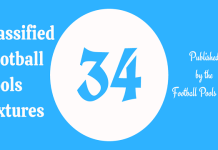FC Barcelona player, Lionel Messi, has been sentenced to 21 months in prison by a Spanish court after being found guilty of three counts of tax fraud.
Messi’s father Jorge, who acts as his adviser and manager, was also sentenced to 21 months in prison.
The four-time world footballer of the year was also ordered to pay a fine of €2.09m, and his father a fine of €1.6m.
However, Legal experts said that neither man was likely to spend time in jail, as Spanish judges habitually suspend jail sentences of less than two years for first-time offenders.
Late on Wednesday, Messi’s management company disclosed that he and his father would appeal against the decision, which was handed down by a criminal court in Barcelona, to Spain’s Supreme Court.
The verdict was an unexpected blow to one of the world’s most admired and best-paid sportsmen. It follows hard on the heels of his decision to retire from the Argentine national team after losing last month’s final of the Copa America, his third successive final defeat with the national side since 2014.
According to the ruling, Messi “failed to declare to the Spanish tax authorities in his personal income tax statements in the years 2007, 2008 and 2009 the income obtained from the exploitation of his image rights”. The actions taken by Mr Messi and his father were part of a “strategy”, the court said.
The footballer, who appeared in court last month, was accused of defrauding the tax authorities by using offshore accounts to conceal earnings in a trial that centred on the alleged unlawful activities of his father. But authorities said the Argentine player knew enough to also be charged in the case.
The pair were accused of using companies in Belize and Uruguay to avoid paying taxes on €4.16m of income earned through the sale of the footballer’s image rights between 2007 and 2009. The income related to contracts with Banco Sabadell, Danone, Adidas, Pepsi-Cola, Procter & Gamble and the Kuwait Food Company. Both men had denied any wrongdoing.
In August 2013, father and son made a voluntary “corrective payment” of €5m — equal to the alleged unpaid tax plus interest. Mr Messi’s lawyers had argued that he had “never devoted a minute of his life to reading, studying or analysing” the contracts.
The judges acknowledged this argument in Wednesday’s ruling: “[Messi’s] line of defence has always been the same … he only played football, all the decisions were taken by the lawyers, and he never asked his father anything because he trusted him.”
But the ruling also argued that Messi had signed numerous papers relevant to the tax fraud over several years and concluded that his “lack of knowledge was the result of an earlier decision, more or less conscious, not to acquire it”.
The judges added: “This was no error and it cannot lead to the avoidance of responsibility. You cannot err about something that you had no interest in knowing.
FC Barcelona gave both Messi and his father their full support. “The club, in agreement with the government prosecution service, considers that the player, who has corrected his position with the Spanish tax office, is in no way criminally responsible with regards to the facts underlined in this case.
“FC Barcelona continues to be at the disposal of Leo Messi and his family to support him in whatever action he decides to take in defence of his honesty and his legal interests.”
Legal experts pointed out that the verdict was unlikely to have a direct impact on Mr Messi’s playing career.
“In cases where the sentence is less than two years in prison, the judges can suspend the jail term provided there are no previous convictions and that the civil penalty has been paid,” said Chairman of Cremades & Calvo-Sotelo, a Spanish law firm, Javier Cremades.
That approach was taken in “99 per cent of cases” but Mr. Cremades cautioned that judges in a recent high-profile fraud case involving a Spanish flamenco singer had decided to impose a jail term regardless.












